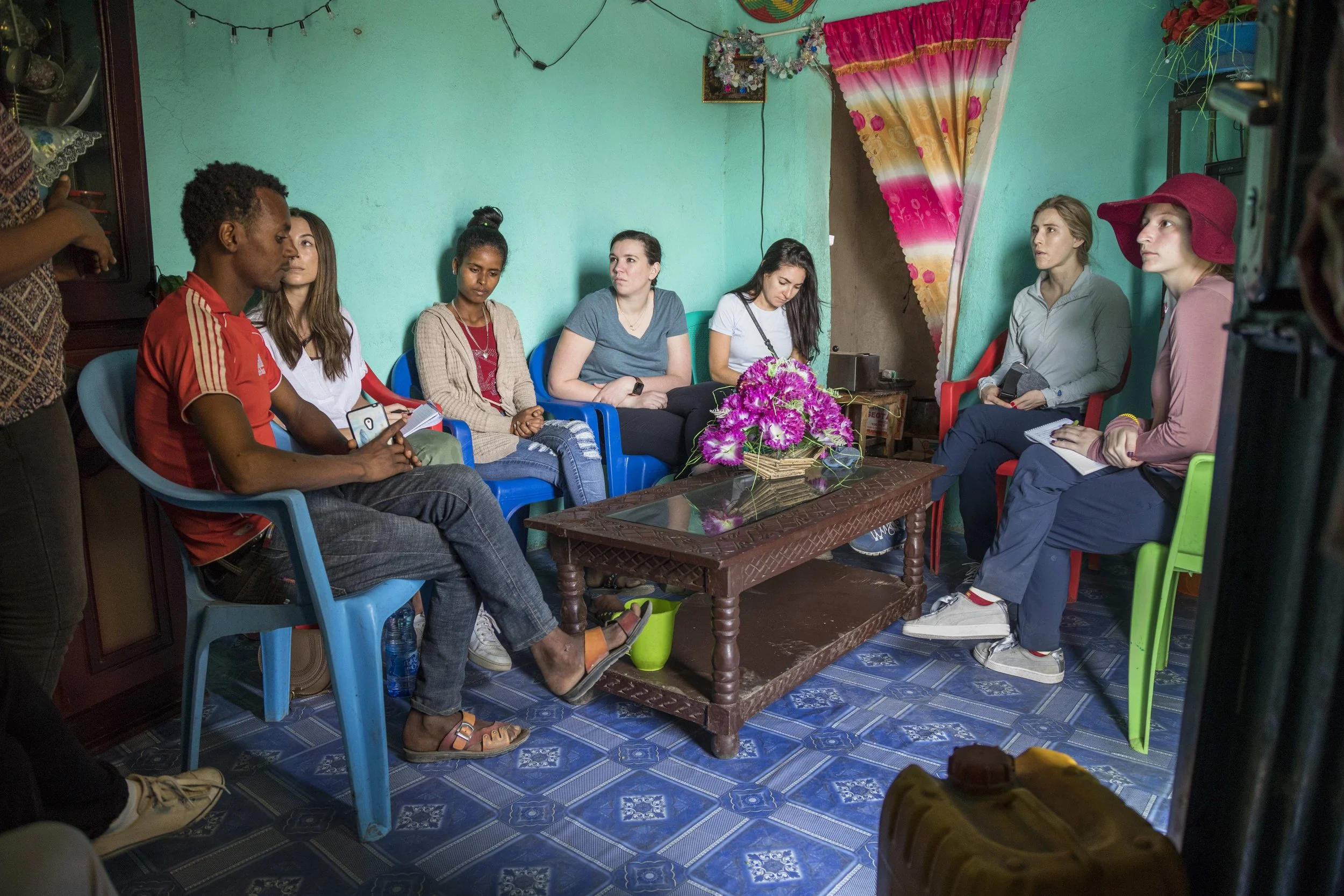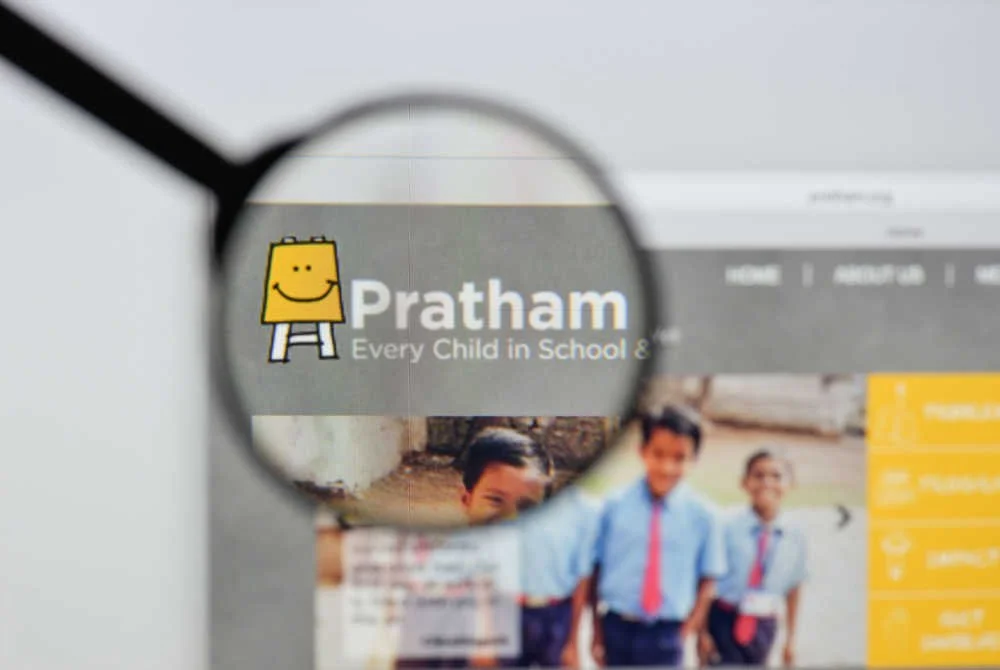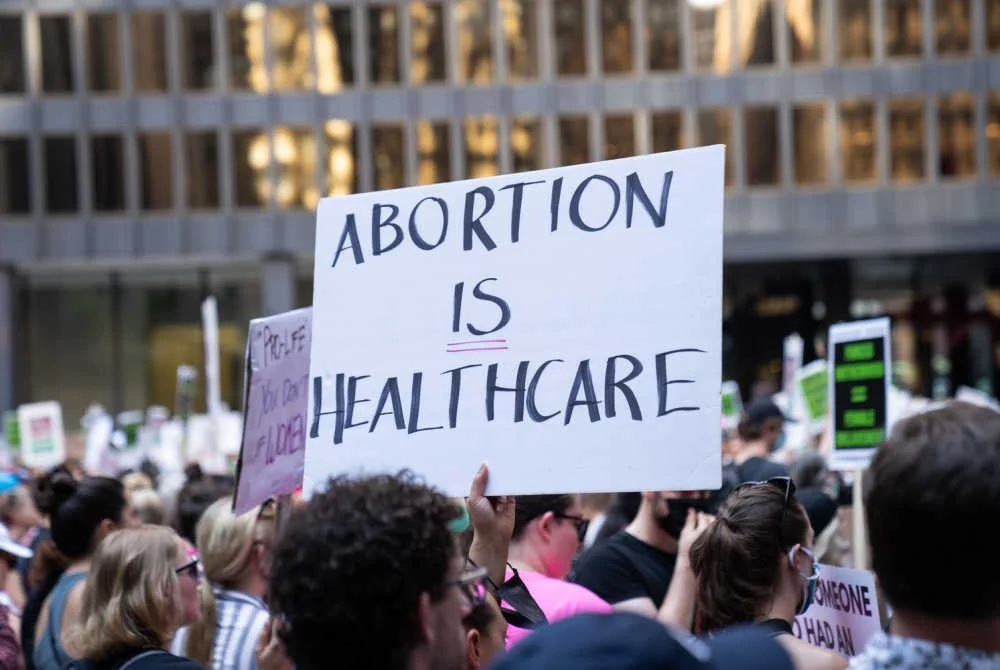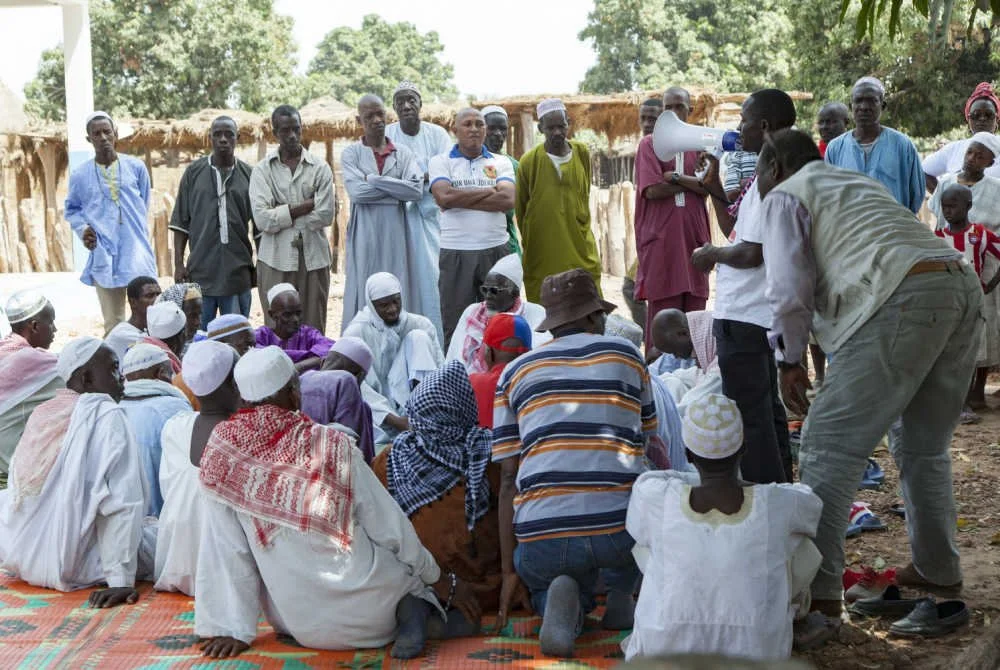Chasm: What Are Funders Doing To Close Big New Gaps in Aid for Family Planning?
/Nick Fox/Shutterstock
Since Donald Trump t00k office in January, and reimposed—and then greatly expanded—the Global Gag Rule (GGR), global family planning advocates and funders have been in crisis mode. Under the expanded version of the GGR, health organizations overseas will not be eligible to receive U.S. aid money if their work even touches on the subject of abortion.
Trump also ended U.S. funding to the United Nations Population Fund (UNFPA). The United States is one of the biggest contributors to the UNFPA, and at the time of the announced budget cuts, the organization was already facing a $700 million funding shortfall.
But there's more: Trump's budget proposal also calls for eliminating all the U.S. aid for family planning that flows through the United States Agency for International Development (USAID).
Among those speaking out against these moves—which experts believe will result in more abortions and more maternal deaths—is Melinda Gates. This is no surprise. The Gates Foundation is one of the biggest private funders of global family planning, along with the Susan Thompson Buffett Foundation. In recent years, Melinda Gates has emerged as an increasingly visible and passionate leader on this issue.
In 2012, she and the Gates Foundation launched Family Planning 2020 (FP2020). Based on the simple idea that “all women, no matter where they live, should have access to life-saving contraceptives,” FP2020 is a global health movement that aims to reach 120 million women by the year 2020.
Related:
- Gag Reflex: Melinda Gates Isn’t the Only Funder Worried About the Mexico City Policy
- What has Gates Done Lately on Global Family Planning? Big Things, With a Big Partner
- Pay Attention: The Most Powerful Woman in Philanthropy Is Zeroing in on Gender Equality
In the opening session of this year’s London Summit on Family Planning, happening this week, Gates issued a challenge of sorts to Donald Trump, saying, “If empowering women is more than just rhetoric for the president, he will prove it by funding family planning.”
We won’t hold our breath. While Congress may not go along with all of Trump's proposed budget cuts in this area, the effect of the new GGR, along with the cutoff of funds for UNFPA, will result in major shortfalls in U.S. funding for family planning.
All this context explains the Gates Foundation's announcement this week that it is increasing its family planning funding by around 60 percent—committing $375 million over the next three years. Around $250 million of that is dedicated to sexual and reproductive health services for adolescent and teenaged girls.
Melinda Gates said that the "additional funding can’t begin to close the gap that the U.S budget cuts could create.” And she's right about that. But it's worth considering that Bill Gates has a net worth of nearly $90 billion that's sitting in private investments and stands apart from the $40 billion endowment of the Gates Foundation. By drawing on this fortune, or dipping into the foundation's endowment, Bill and Melinda could, in theory, easily make up make up the difference if all U.S. government funds for family planning and reproductive rights—which totaled $608 million in FY 2017—were to disappear. And they could do so not just in the coming year, but for four or eight years to come if need be.
Related: Bill and Melinda Gates Have a Big Vision. So Why Aren't They Writing Bigger Checks?
Warren Buffett could handle such an outlay, too. The vast bulk of Buffett's $73 billion fortune is destined for philanthropy, with much of that earmarked for the Gates Foundation. No cause has been more important to Buffett and his daughter Susie than family planning and reproductive health. The Susan Thompson Buffett Foundation, chaired by Susie, is the private biggest funder in this space globally. Warren Buffett could accelerate his transfers of Berkshire Hathaway stock to both the Gates Foundation and STBF, freeing up billions of dollars more for near-term family planning funding.
Related: The Buffett Universe: A Surprising Look at the Most Powerful Family in U.S. Philanthropy
Maybe such options are already being discussed. Maybe not. There are probably some real limits on the capacity of those two foundations to move a lot more money quickly. Regardless, one hopes the Gateses and the Buffett family are thinking outside the box, right now. One thing about family planning is that investments today pay major dividends for decades to come by preventing unwanted pregnancies, slowing population growth in poor countries, and keeping women alive. Also, funders know the approaches that work, in contrast to other challenges that are more complex and require more experimentation before doubling down. Overall, there's a compelling case for donors to front-load their giving on family planning. Especially right now.
Of course, Gates and Buffett aren't the only major donors in this space. FP2020 brought on a number of first time donors and new commitments this year. Here are a few highlights.
The U.K.-based charity Comic Relief, in partnership with the Gates Foundation, is making a $6 million grant to the Challenge Initiative (TCI) to support its reproductive health work in sub-Saharan Africa. For decades, Comic Relief has focused its grantmaking energies on improving the lives of poor people around the world, reducing incidences of violence, abuse, and exploitation, overcoming inequality, and building economic resilience in vulnerable populations.
Among the largest new commitments was Doctors of the World/Médecins du Monde (MdM) pledge of around €40 million from January 2017 through December 2020. The funds are allocated to sexual and reproductive health programs dedicated to improving the prevention and management of unwanted pregnancies, providing access to family planning for 1 million people, promoting public health policies addressing the specific needs of young people, and empowering rights holders.
Another big pledge came from the India-based organization Tata Trusts, which is investing around $10 million by 2019. The money provides access to family planning, maternal, newborn, and adolescent health services in India and around the globe.
The Vodafone Foundation also pitched in with $1 million. In partnership with Population Services International and in collaboration with the Gates and Children’s Investment Fund, Vodafone is investing those funds in the Adolescents360 program in Tanzania. This mobile platform will reach more than 15,000 young people, identify their reproductive health needs and connect them with providers.
Related: Two Mega-Funders Take Aim at Adolescent Sexual Reproductive Health in Africa







































